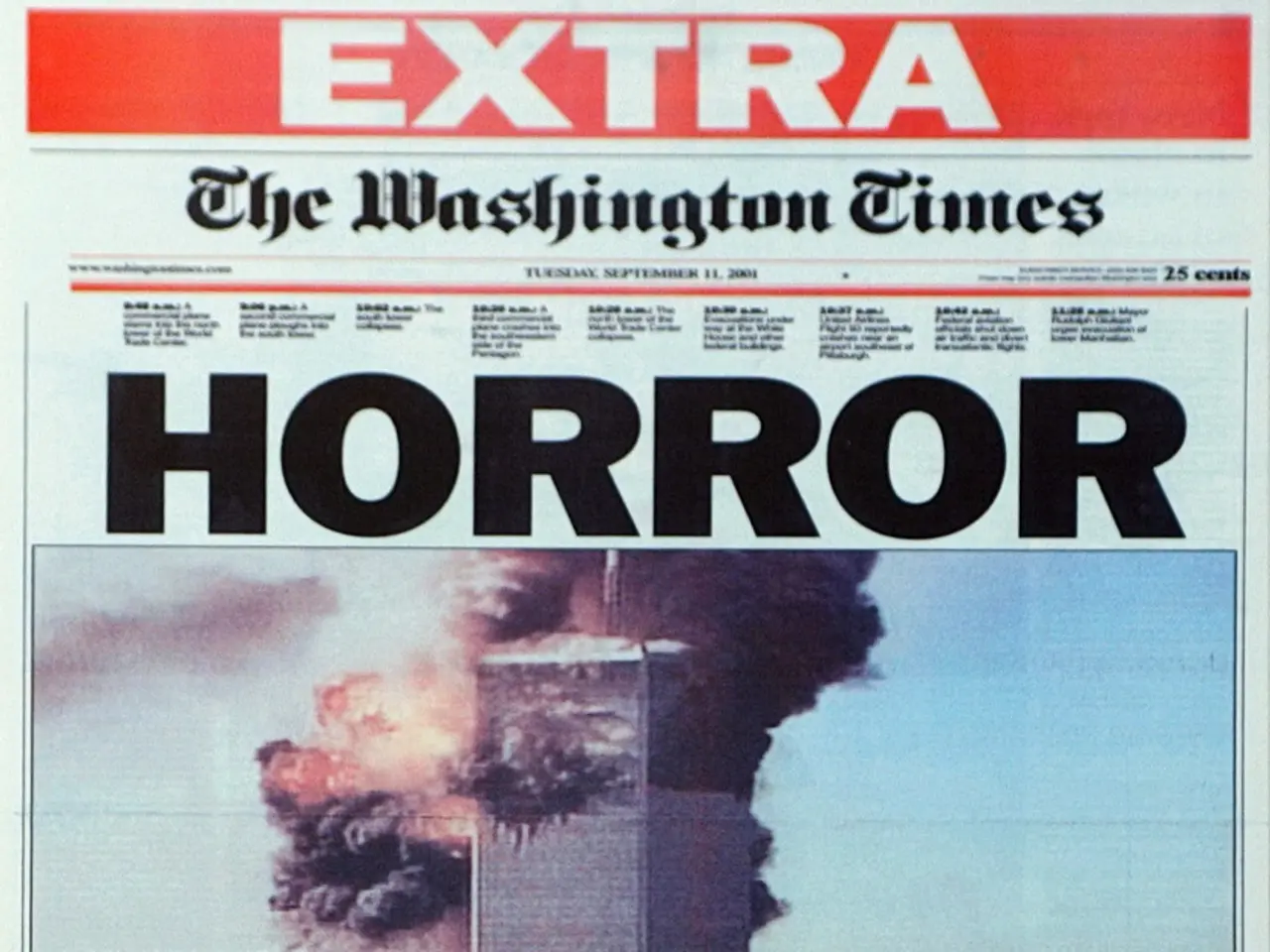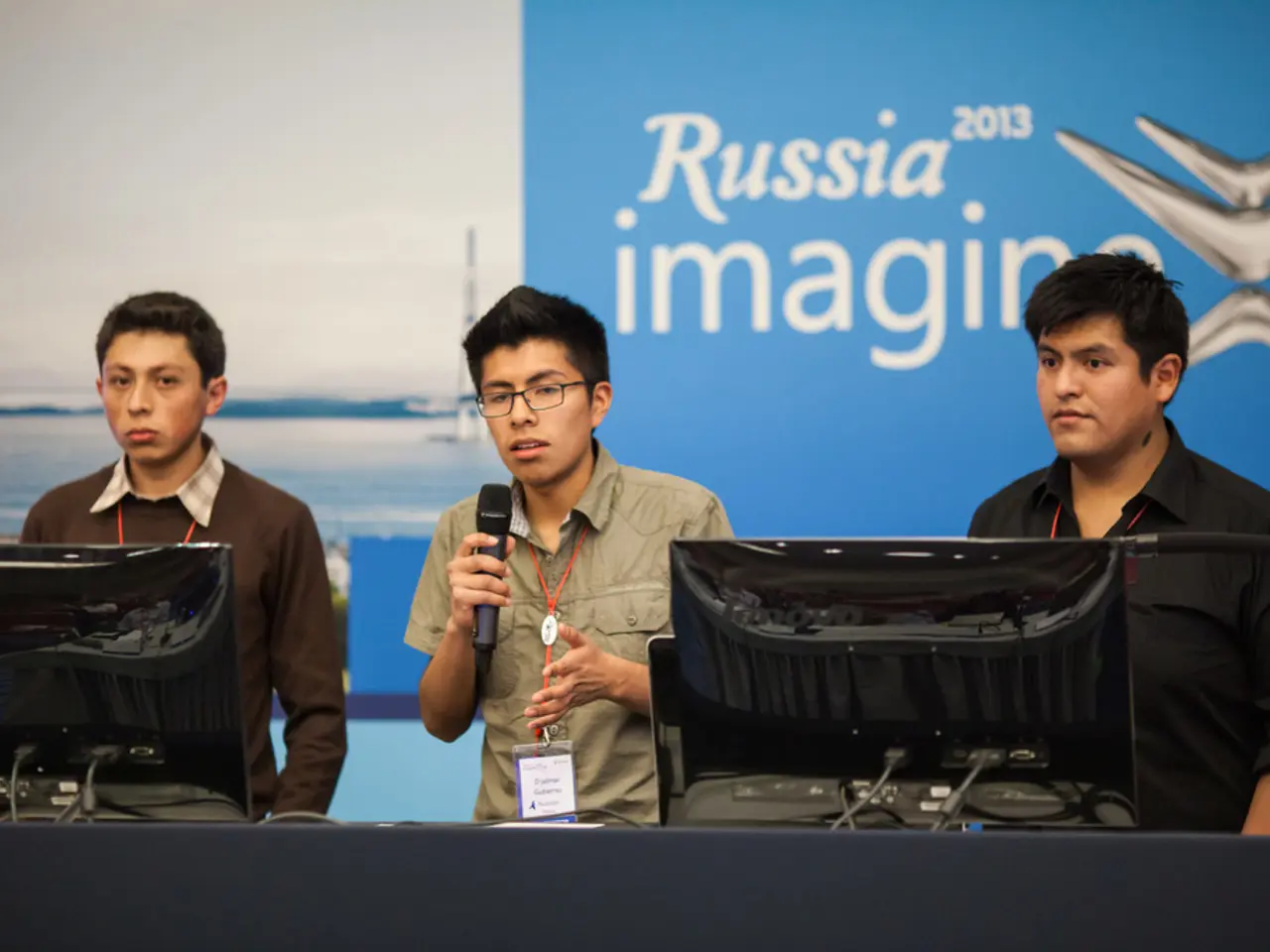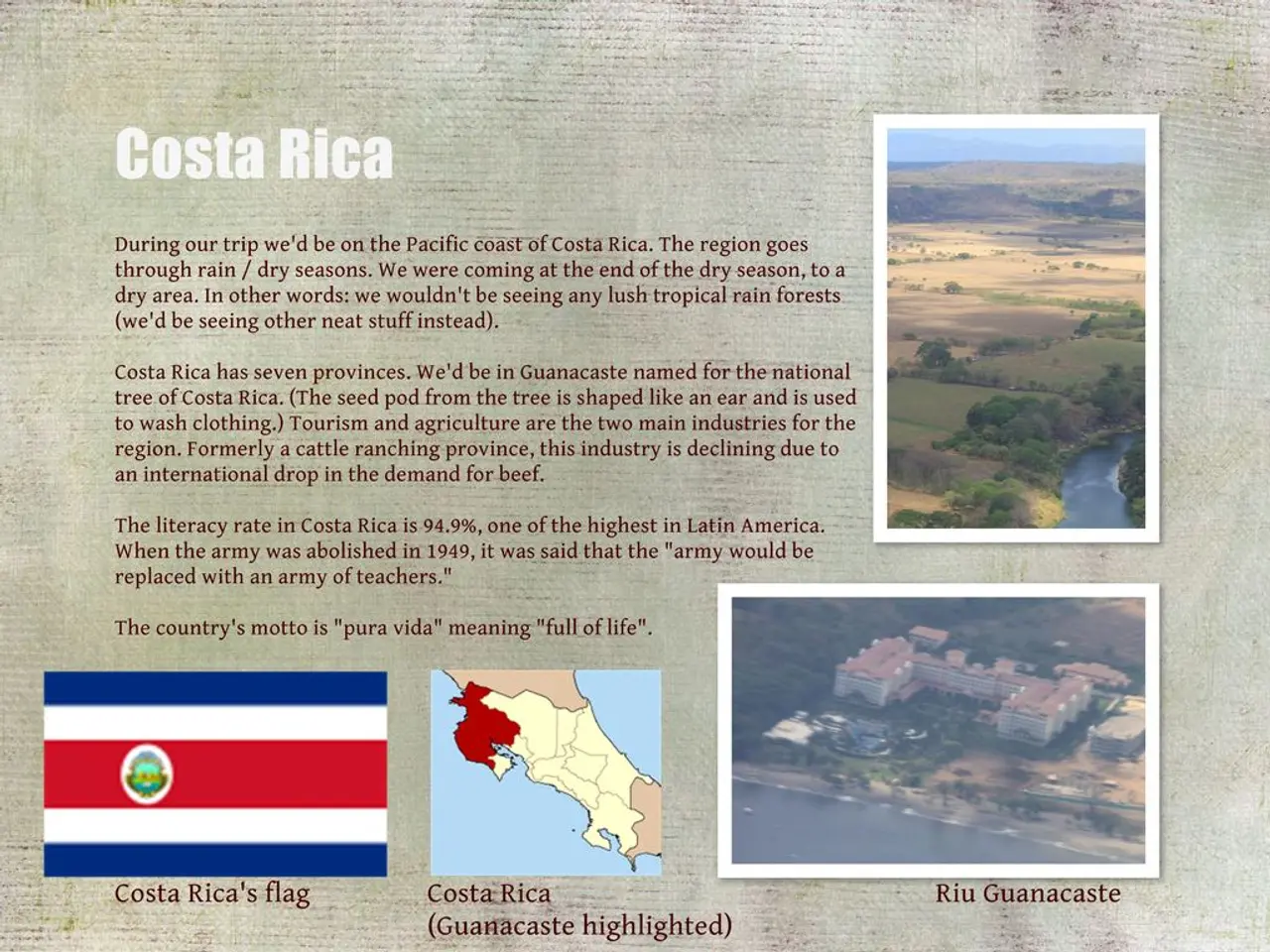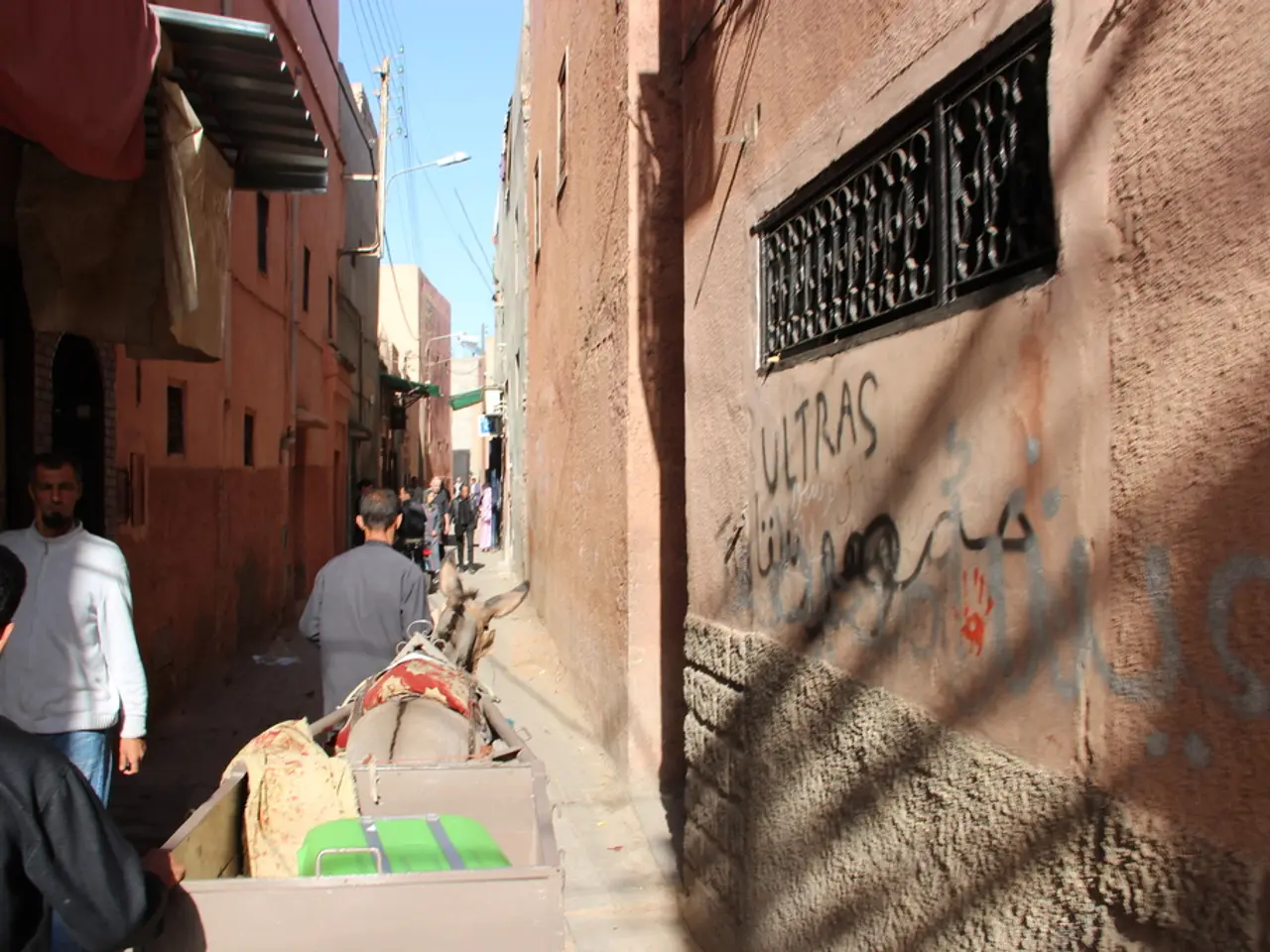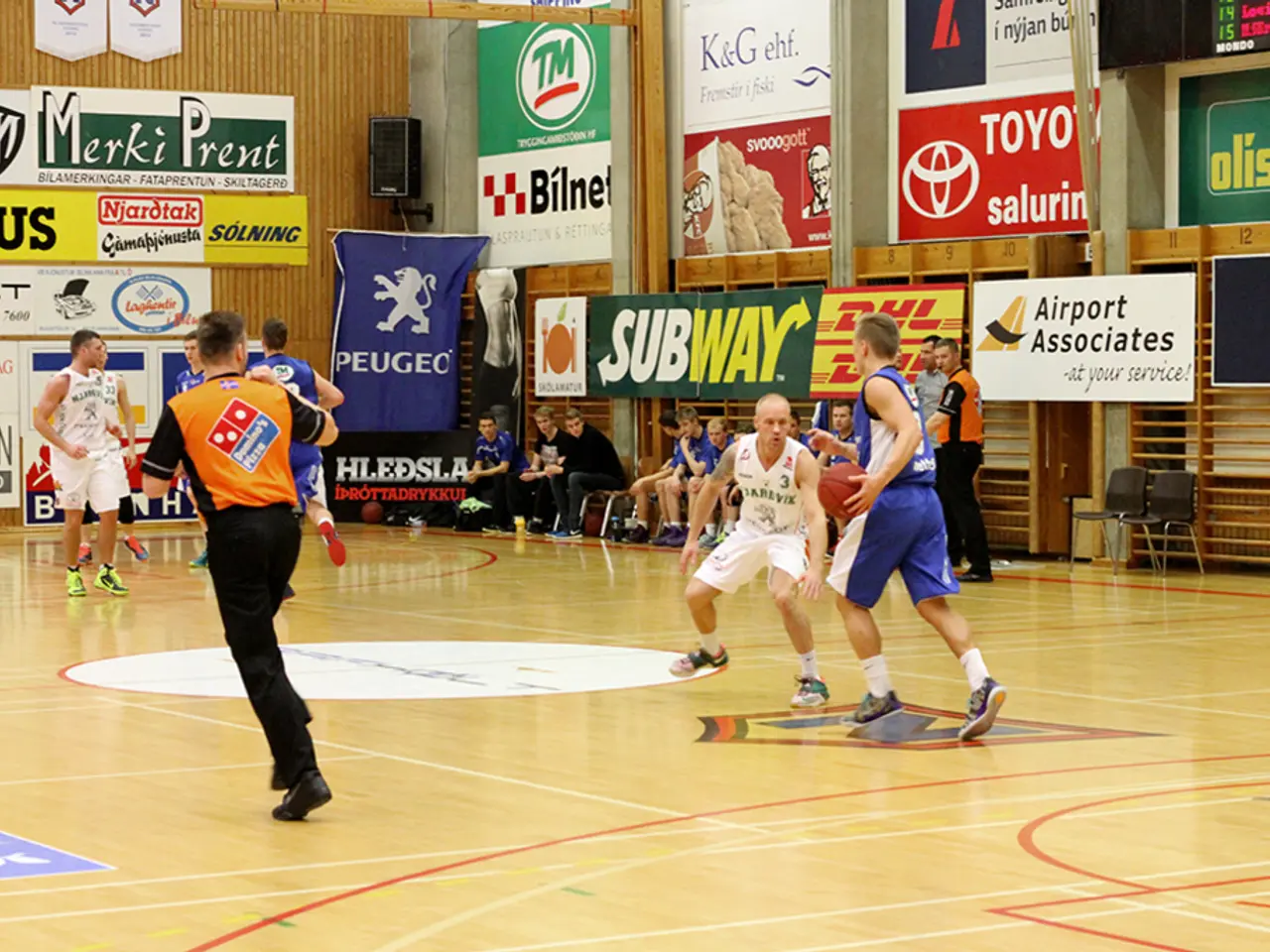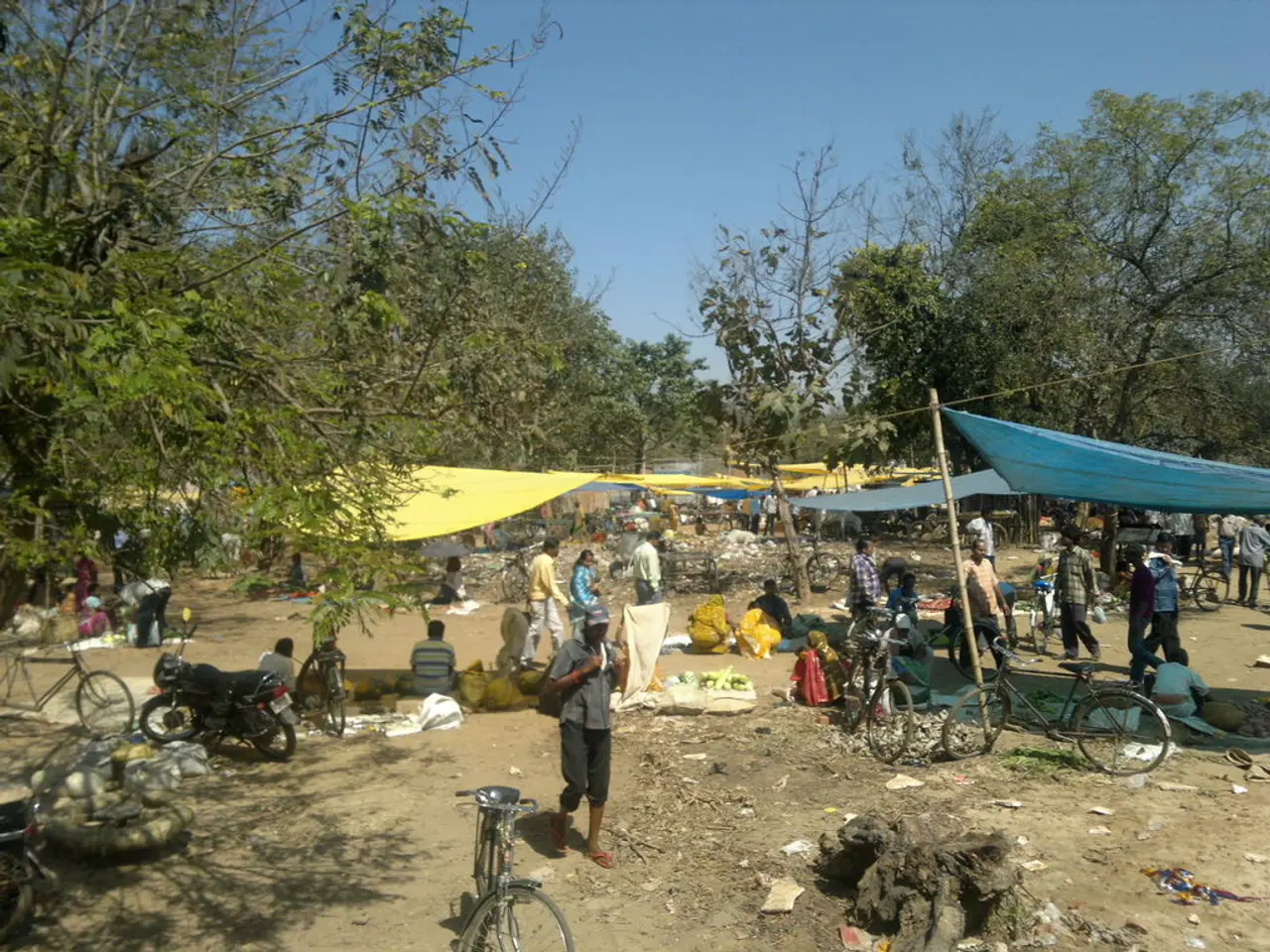Israel accused of perpetrating war crimes through the alleged slayings of Gazans at humanitarian aid sites, according to Human Rights Watch.
In the embattled Gaza Strip, a humanitarian crisis continues to unfold as civilians seeking aid face deadly attacks and restrictions on essential services. On Friday, Human Rights Watch (HRW) accused Israel of committing war crimes by targeting starving civilians near food aid distribution centers.
HRW called on nations to pressure Israel to stop using deadly force as a crowd control method, to lift restrictions on aid entering Gaza, and to end the Gaza Humanitarian Foundation (GHF) system. The organization's plea comes after several mass casualty events near GHF sites since the foundation began operating in late May.
On Wednesday alone, at least 58 people were killed near the Zikim aid distribution center, and another 14 were killed near an aid center in Muraj in southern Gaza. The IDF has stated that it only fires "warning shots" at crowds and when it feels like its personnel are in danger, but eyewitnesses and the high civilian death toll have cast doubt on these claims.
The Israeli government has previously claimed that Hamas shoots people waiting in food lines and films the events for propaganda videos, while Hamas has denied these claims. However, the UN human rights office has noted that most of the casualties were not directly involved in hostilities but were desperately seeking survival.
The blockade on Gaza, which has been in place for years, has caused widespread malnutrition and conditions likely to lead to famine, according to the U.N. and aid groups. The Integrated Food Security Phase Classification reported that the worst-case scenario of famine is playing out in the Gaza Strip.
The IDF has accused Hamas of starving and endangering the population in order to maintain control over the strip and taking actions "to prevent the success of food distribution in Gaza." Hamas senior official Izzat al-Risheq criticized a recent visit by Donald Trump's envoy, calling it a publicity stunt aimed at containing the growing outrage over the U.S.-Israeli partnership in starving the people of Gaza.
Access to food and other essential items and services has plummeted to unprecedented levels in Gaza. Despite Israel announcing daily military pauses since 27 July 2025 to facilitate humanitarian responses, Israeli forces have continued attacking along food convoy routes and near GHF aid sites. Between 30 and 31 July alone, at least 105 Palestinians were killed and hundreds injured near these routes and sites.
Aid agencies like the International Rescue Committee (IRC) face extreme difficulties in delivering aid due to the near-total blockade on Gaza. Although the IRC has medical supplies ready for shipment and continues to deliver food, water, and emergency medical services to displaced Palestinians and hospitals, the blockade and ongoing conflict severely constrain access. Emergency response teams work with local partners but delivery remains uncertain and challenging.
Despite these challenges, aid slowly resumed entry into Gaza after an 11-week total blockade on all humanitarian supplies earlier this year. However, the situation remains dire, with a hunger crisis worsening across Gaza, and at least 159 people, including at least 90 children, having died from starvation and malnutrition since the war began in the wake of the Hamas-led Oct. 7, 2023, terror attack on southern Israel.
The UK is reportedly considering recognizing the Palestinian state, potentially in response to Israeli Prime Minister Netanyahu's consideration of annexing parts of Gaza. The international community must take action to alleviate the suffering of the people of Gaza and ensure their basic rights to food, shelter, and security are protected.
[1] UN human rights office, "Israel/Palestine: Civilians seeking food aid in Gaza face deadly attacks," press release, 31 July 2025. [2] Human Rights Watch, "Israel: War Crimes in Gaza Aid Sites," press release, 31 July 2025. [3] International Rescue Committee, "Gaza Crisis: Humanitarian Needs Remain Severe Despite Aid Deliveries," press release, 31 July 2025. [4] Middle East Eye, "Israel accused of war crimes in Gaza aid attacks," 31 July 2025.
- Human Rights Watch (HRW) has accused Israel of committing war crimes by targeting civilians near food aid distribution centers in Gaza, urging international nations to pressure Israel to stop using deadly force, lift restrictions on aid, and end the Gaza Humanitarian Foundation system.
- The UN human rights office has emphasized that most of the casualties in Gaza are not directly involved in hostilities but are desperate civilians seeking aid and survival.
- The Israeli government has faced criticism regarding the blockade on Gaza, as it has been linked to widespread malnutrition leading to famine-like conditions in the region, according to the United Nations and aid groups.
- Aid agencies, such as the International Rescue Committee (IRC), face extreme difficulties in delivering aid to Gaza due to the near-total blockade, as the ongoing conflict severely constrains access to essential services and items.
- The IDF has accused Hamas of starving and endangering the population in Gaza to maintain control over the strip and to prevent the success of food distribution. However, both Hamas and the UN human rights office have disputed these claims.
- The international community is under growing pressure to alleviate the suffering of the people of Gaza and ensure their basic rights to food, shelter, and security are protected, as both the UK and the international community consider policy-and-legislation responses to the ongoing crisis in war-and-conflicts areas like Gaza. General-news coverage and reports from various aid agencies have highlighted the dire situation and the urgent need for action and intervention.
